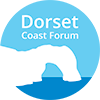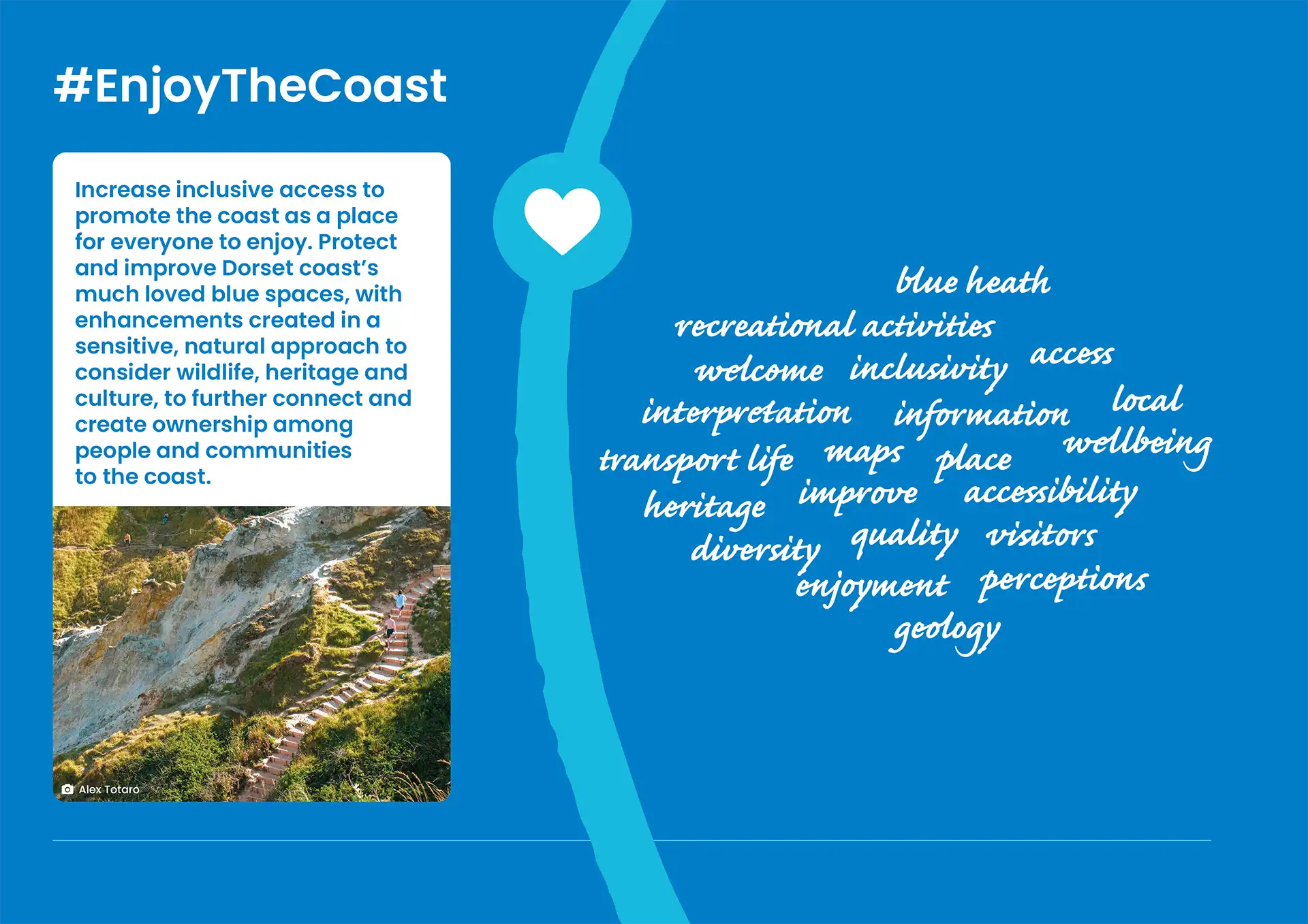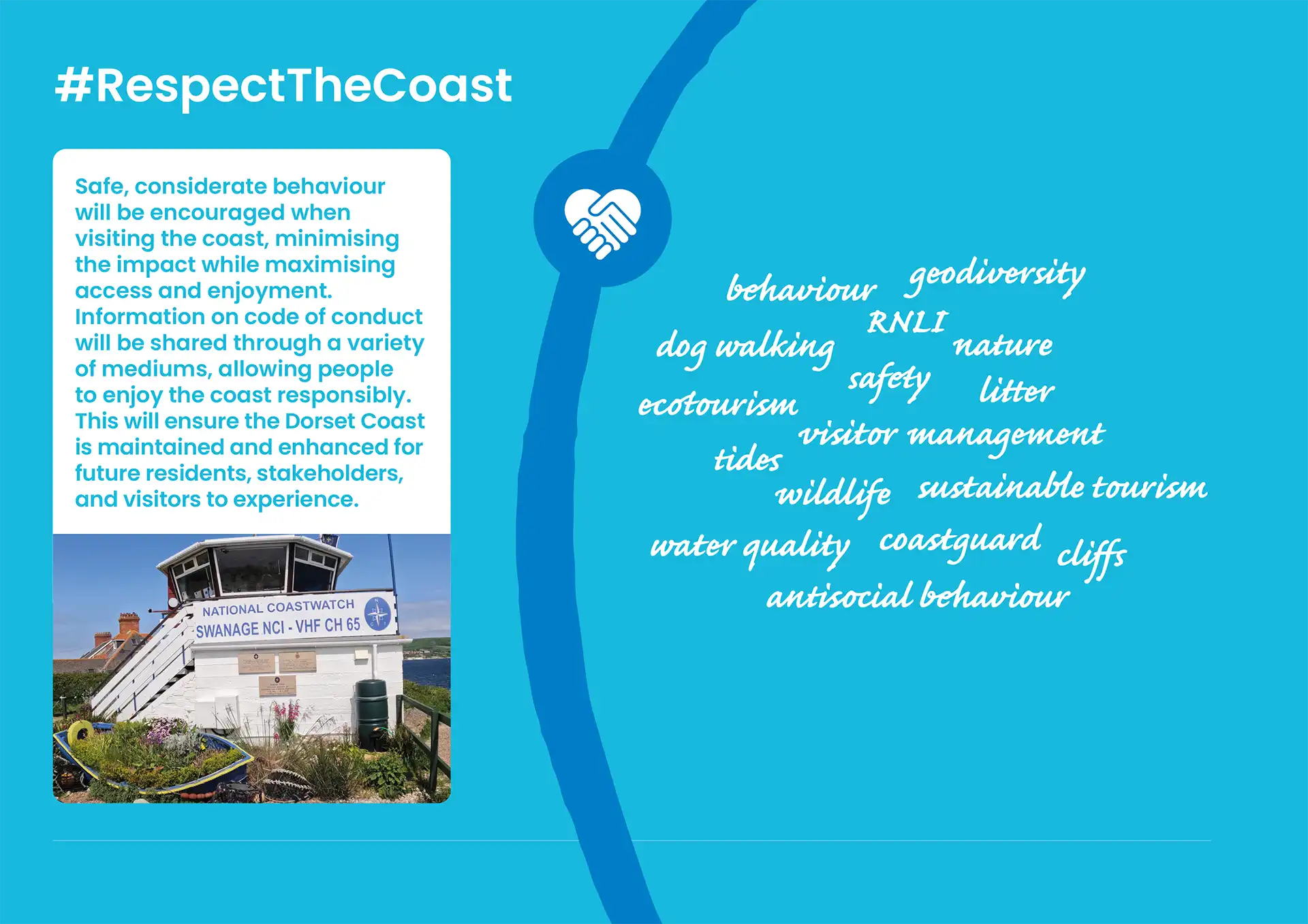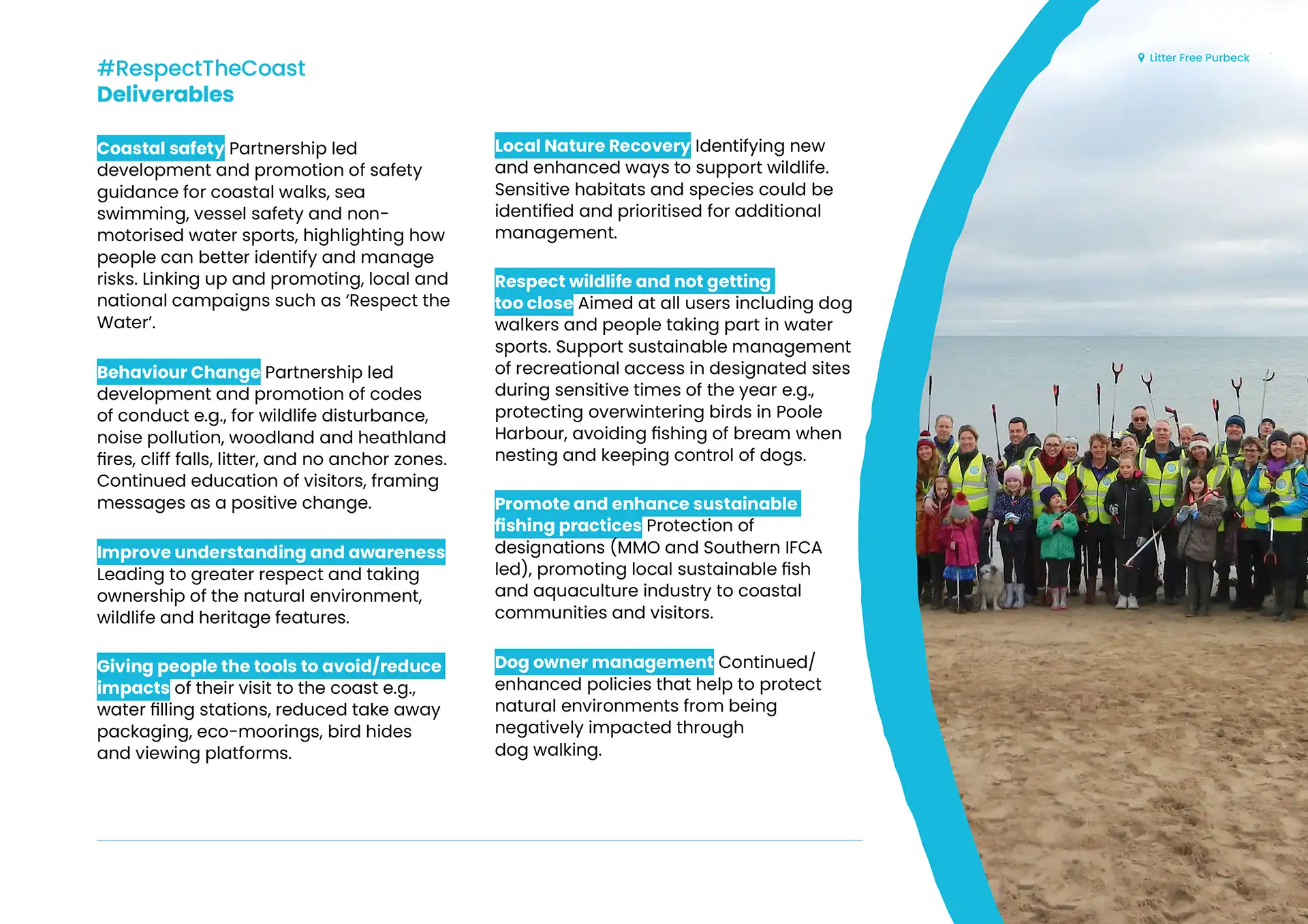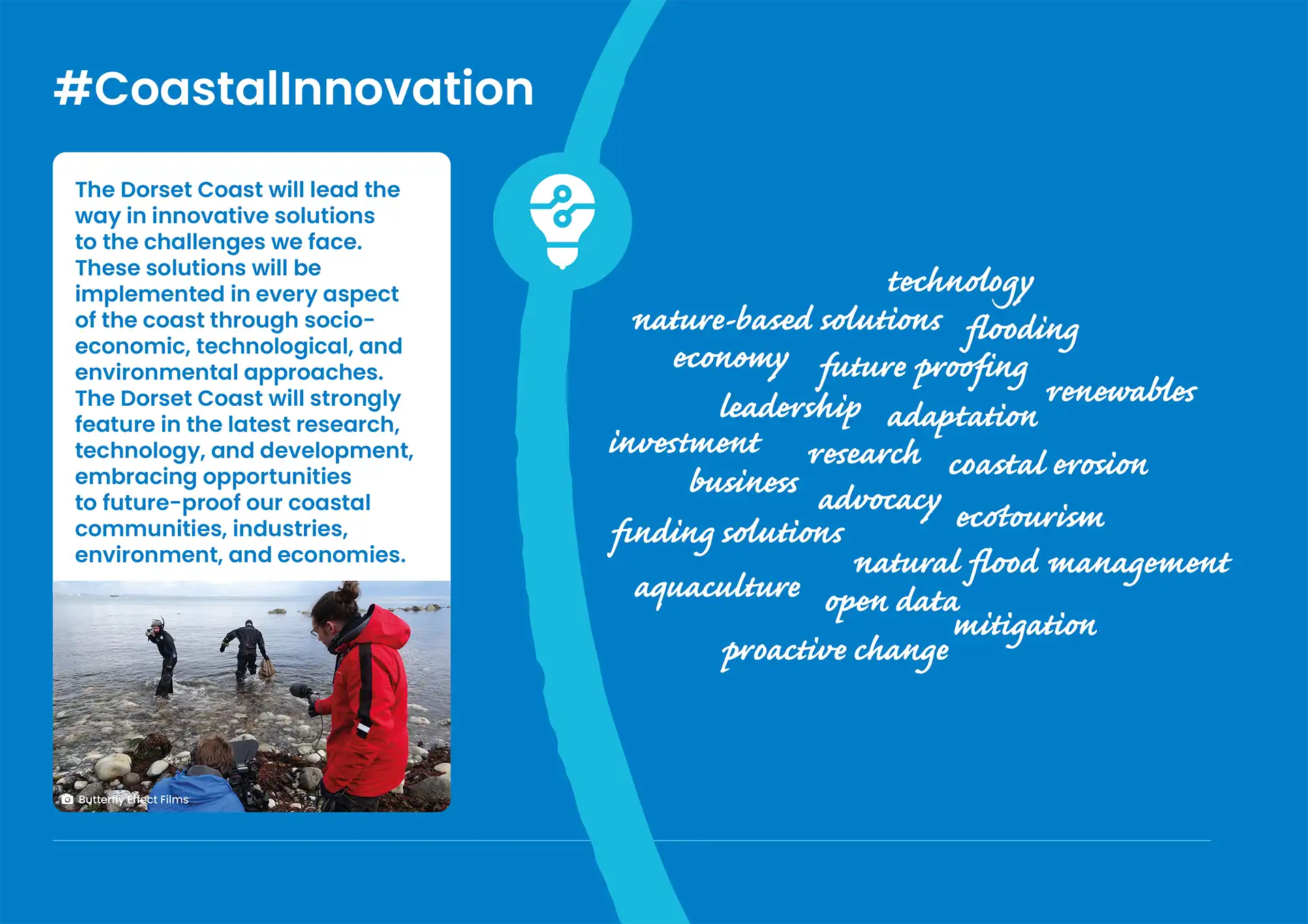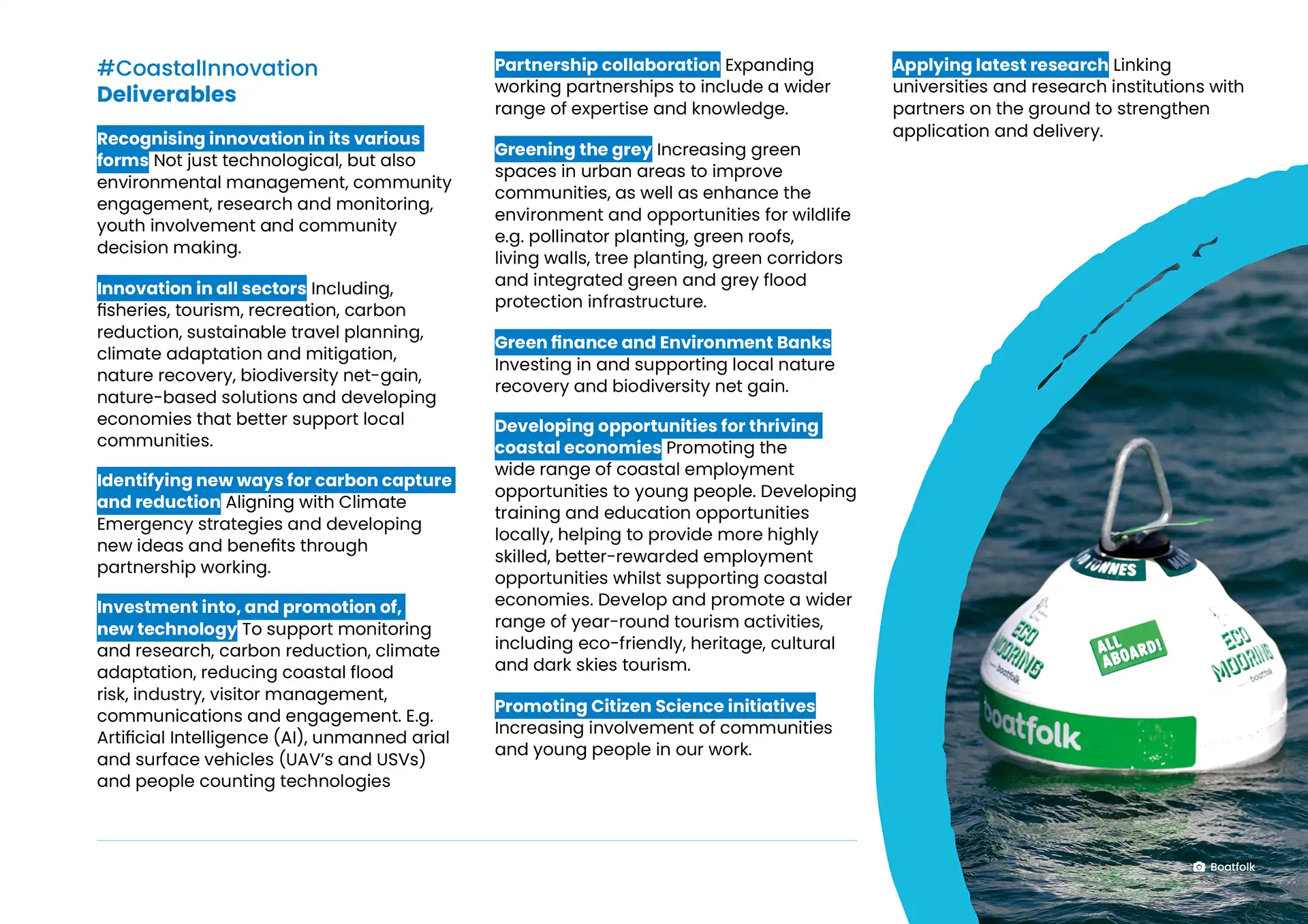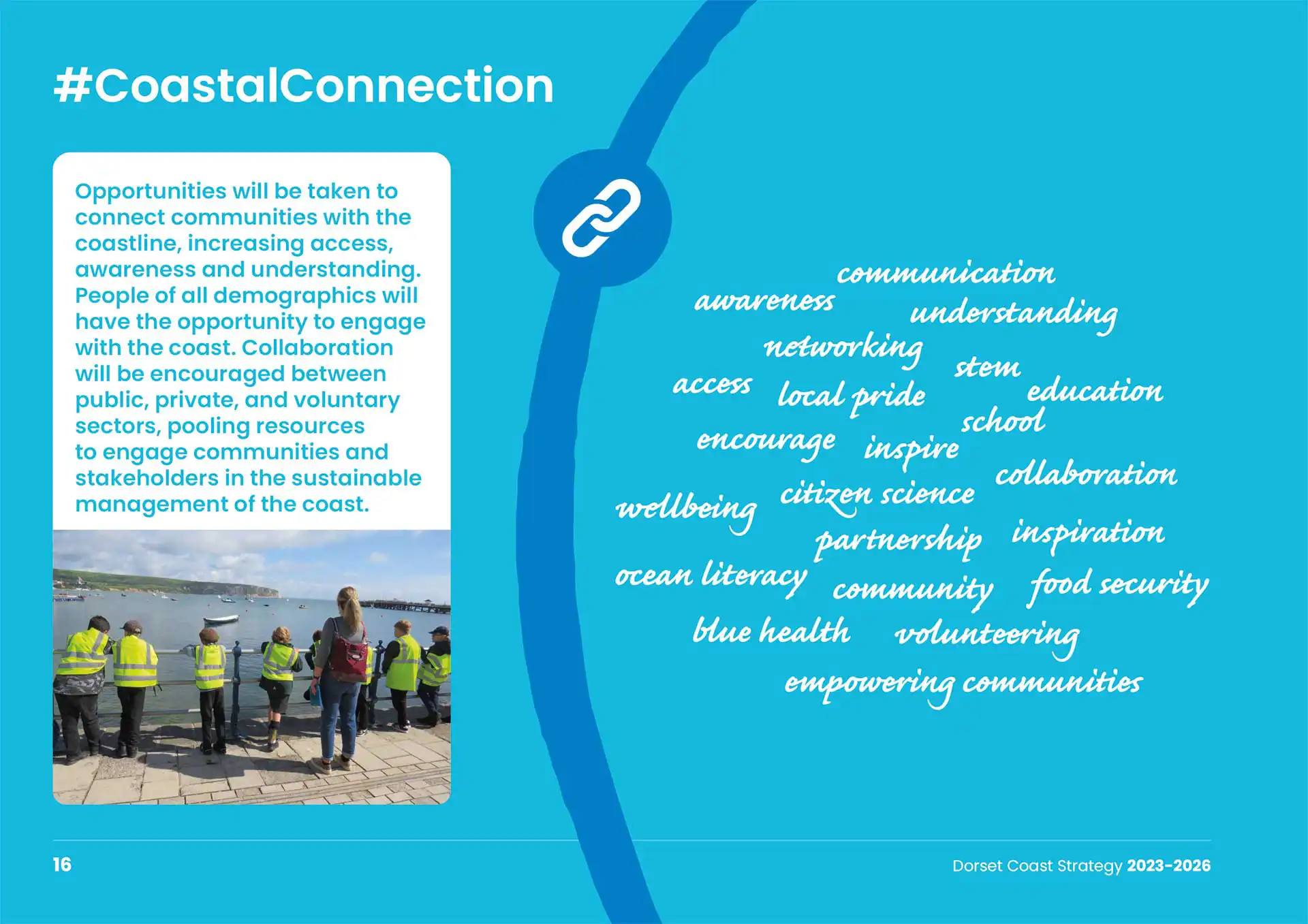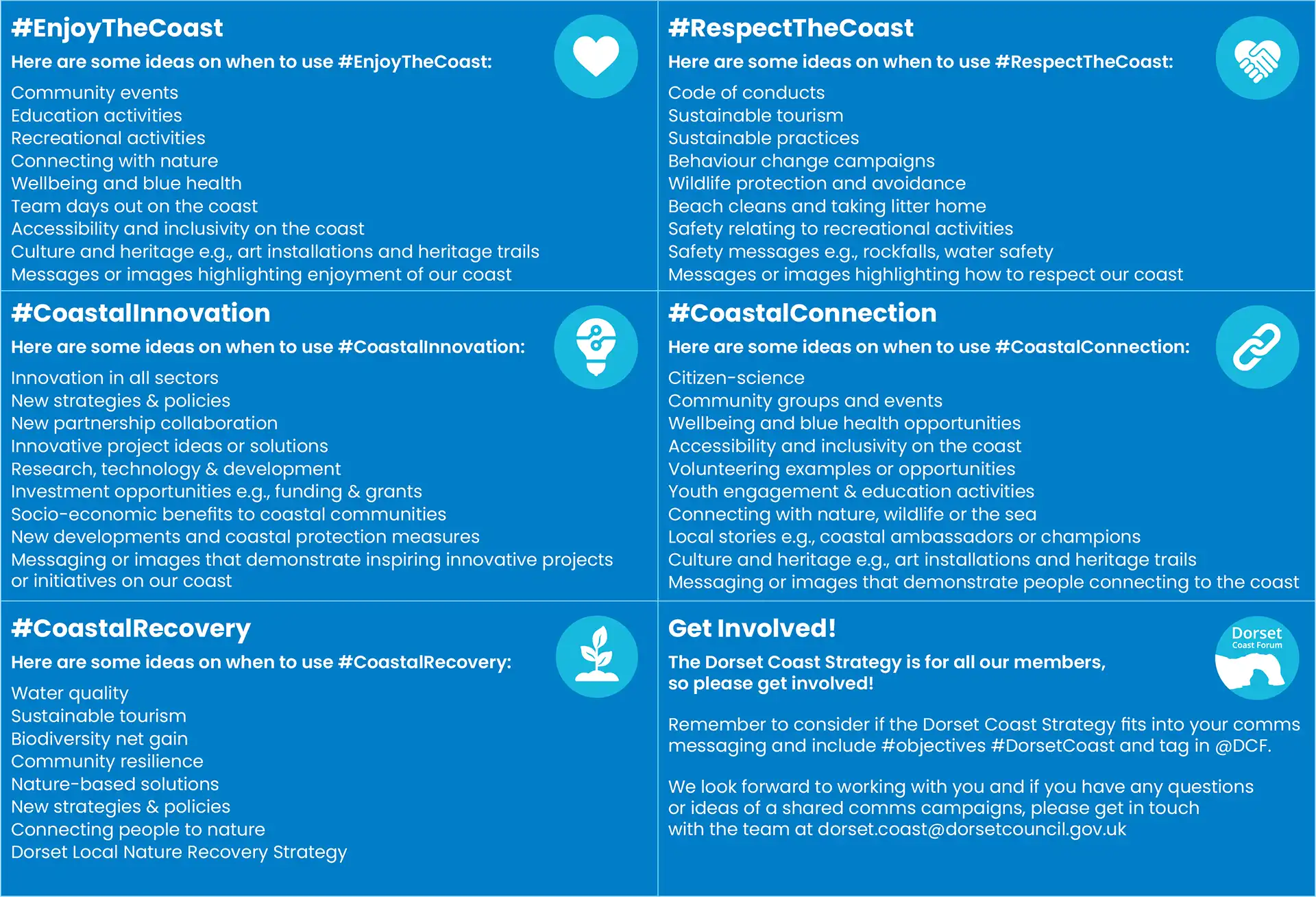Dorset Coast Strategy
Dorset Coast Strategy 2023-2026
This is the strategy for the whole of the Dorset Coast and for the members of Dorset Coast Forum.
Dorset Coast Strategy
Download
Communications Toolkit
Download
The purpose of the Dorset Coast Strategy
This is a Strategy for the whole of the Dorset Coast and for the members of Dorset Coast Forum. It will inspire and influence members to work in partnership to deliver and promote sustainable management and enhancement of the coast, so that the vision and objectives are reached, and the Dorset coast can be protected and enjoyed for the natural environment, wildlife, communities and local economies. It aligns with wider policies and strategies relevant to these objectives. *For the purposes of this document, when referring to the Dorset coast, this is in the wider sense, incorporating Dorset, Bournemouth, Christchurch and Poole.
Vision for the Dorset Coast
“The Dorset Coast and marine environment, its rich history and biodiversity, are enhanced and thriving for nature, wildlife and communities. Coastal communities are healthy, resilient, and connected with natural processes, whilst being supported by a diverse, sustainable, and thriving coastal economy. Both residents and visitors alike are able to access and use the coast responsibly for enjoyment, education, and inspiration. Partnerships are formed and successfully deliver ambitious short, medium, and long-term goals linked to the objectives below which support this vision.”
Overview of the Dorset Coast
The Dorset Coast Strategy covers the wider Dorset Coast including Dorset, Bournemouth, Christchurch and Poole.
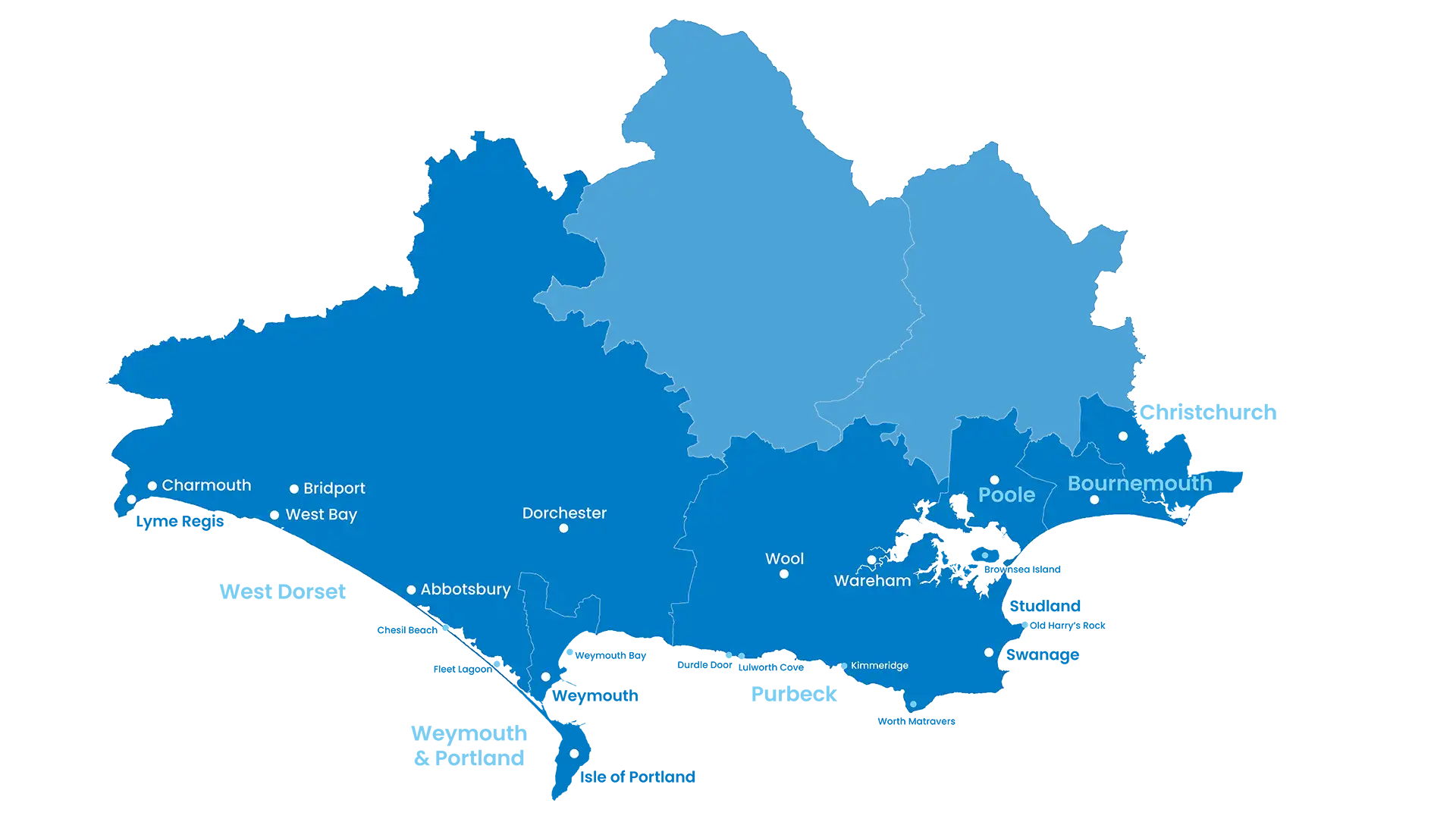
Challenges and Opportunities for the Dorset Coast
Challenge: Changing coast and climate: Carbon reduction, flooding, coastal erosion, adaptation and resilience.
Opportunity
Taking action and delivery of measures that help combat climate change e.g. new technologies, pilot projects, localised solutions and knowledge sharing.
Engaging communities in our changing coast and climate Involving communities, particularly young people, in decision making. Intensifying community resilience and adaptation, education, STEM, and volunteering opportunities.
Challenge: Loss of biodiversity and pressures on natural habitats.
Opportunity
Increase support for the natural environment:
- Existing and expanding range of landscapes, habitats and species and supporting partners.
- Development and delivery of Dorset’s Local Nature Recovery Strategy.
Challenge: Water Pollution - River and seas.
Opportunity
- Improving water quality for the benefit of the environment, wildlife and communities, not only in
the sea, but also further up into catchment area where it impacts on the coast. - Partnership working and involving communities creates greater benefits.
- Regularly sharing accessible information on issues, challenges, and potential solutions.
Challenge: Tourism and visitor management: Littering, pollution, overcrowding in peak tourist spots, parking and traffic.
Opportunity
Benefit from tourism £1.3bn visitor spend and 30,584 tourism jobs (Visit Dorset, 2021).
Greater benefits can be gained from sustainable tourism management and identifying mitigation measures e.g. encouraging behaviour change, balancing the needs of tourism with the needs of natural environment and creating opportunities for local residents to also benefit from living on our beautiful coast.
Challenge: Safety and wildlife disturbance.
Opportunity
Partnership working and joined up messaging:
- Jointly creating and sharing codes of conduct, interpretation, education, and provision of clear safety guidance.
- Using technology to share information in new ways e.g. drone footage, virtual reality, and apps.
Challenge: Damage to heritage assets due to human impact and coastal erosion.
Opportunity
- Interpretation and celebration Exciting range of historical features & landscapes, as well as local stories can be recorded and shared.
- Using new technologies and creativity to better connect people to the coast.
- Building respect and ownership of our heritage.
Challenge: Deprivation - Ageing population, poor health & well-being, lack of transport, unaffordable housing, low wages, actual/perceived lack of access to the coast.
Opportunity
- Improve health & well-being Creating safe, accessible and good quality blue spaces.
- Improving access Connecting communities to the coast through improved public and sustainable
transport; linking coastal paths with wider rights of way in towns and villages; and providing activities
for local people e.g., ‘buddying’ programmes. - Tackling poverty Bringing local people together to tackle local challenges. Creating opportunities for
protecting and creating local jobs as well as developing affordable housing and workspaces.
Challenge: Seasonal and limited employment opportunities. Plus local and external influences on coastal economies.
Opportunity
Support and boost coastal economies to provide wider benefits
The aims and objectives of economic plans led by local and unitary councils and the Dorset Local Enterprise Partnership, can be supported by coastal partners. E.g., Fishing and aquaculture industries provide opportunities for sustainable/local food sources; ports and harbours support recreation, fishing, trade, boat building and tourism industries; and increased support for the natural environment and management of a changing coast leads to innovation and new jobs.
Challenge: Decline in appearance and character of coastal areas. Due to coastal erosion, lack of co-ordination between different stakeholders and limited investment.
Opportunity
Improve co-ordination through development of masterplans that are fed into and accepted by communities and stakeholders as well as decision makers. Maintain and expand on the quality and uniqueness of the Dorset Coast and its towns, through attracting greater investment, and ensuring that public realm and landscape design improvements are well considered and consulted upon when developments take place.
Utilise creativity and design to support coastal improvements and economies. Creative industries
can greatly boost the appearance and culture of coastal areas, as well as support well-being,
interpretation, engaging communities and celebrating all that the coast has to offer.
Objectives
The five objectives below are in the format of hashtags, keeping them simple and allowing for continued use in communications and messaging. The objectives bring together, highlight, celebrate and inspire the work of DCF members. The use of hashtags also introduces the strategy to a wider audience. Under each objective is a set of deliverables. These have been identified by DCF members and are considered to be priorities for the Dorset Coast.
Monitoring and evaluation
As a part of the Dorset Coast Strategy, the Dorset Coast Forum will share relevant data and reports as they are published, using the strategy objectives to communicate the topic. These will be shared in the DCF eNews, website, and social media platforms. This approach will provide a regular assessment of the Strategy’s impact on the work of members and stakeholders as well as identify new needs and priorities. It also shares the work of members, encouraging partnership working and collaboration. Regular calls for new reports or projects will be made, encouraging and giving members a chance to share their work with a wider audience. We will also assess the impact and use of the strategy among members, reporting back on this annually. This will allow us to review and reflect on the success of the strategy, making necessary changes at the end of the 3-year strategy period.
Get Involved!
How can members utilise and support the Dorset Coast Strategy?
Deliverables To work towards the vision of the Dorset Coast Strategy, members can identify ways in which their organisation can contribute to and support deliverables. If facilitation is required, the DCF team can help form project ideas, link with other members and develop partnership projects. Greater benefits are achieved through working together more closely whilst engaging coastal communities. DCF is a resource that supports members to achieve this aim.
Messaging Utilise the #objectives to highlight, celebrate and link up the work of DCF members. To support the Dorset Coast Strategy and monitor its impact, we are asking members to use the objective hashtags in communications and messaging, on social media, at events and when delivering campaigns. Guidance is provided in the form of a communication toolkit as part of this strategy.
Share data and reports If your organisation has new data or reports that help to monitor and evaluate key indicators of challenges and opportunities of the Dorset Coast, share with the DCF Team so that this can be circulated with other members. By sharing this information more widely, members can recognise the impact of their work as a whole and can identify key gaps that need to be addressed going forward.
Code of Conduct There are many codes of conduct and messaging on behaviour targeted at users of the coast. By working in partnership and with other members, messaging can be simplified. For more information, see the DCF Code of Conduct webpage.
Dorset Coast Strategy Communication Toolkit
This toolkit is designed to showcase to DCF members how they can use the Dorset Coast Strategy objectives as part of their communications. Using the strategy’s objectives in partnership will provide a collaborate approach to promoting sustainable management and enhancement of our coast. It will also help align members work by making their polices and strategies relevant to the Dorset Coast Strategy #objectives.
Why hashtags?
The five #objectives are in the format of hashtags to:
- Keep the objectives simple.
- Make it easier to share in our communications and messaging.
- Bring together, highlight, celebrate and inspire the work of DCF members.
- Introduce the strategy to a wider audience.
- Extend their use to everyone living, working and involved with the coast.
- Provide a measurable element by using social media platforms searches on the #objectives and the DCF #DorsetCoast.
If members all work together to use and promote the objectives as part of their communications, we can maximise a collaborative approach of raising awareness of our work and inspiring others to enjoy, respect, protect and connect with our coast.
How can we use #objectives?
Under each objective is a set of deliverables highlighting the type of work or initiative that is relevant to that objective. We are asking DCF members to use the relevant #objective in their communications to support and link into the strategy. The audience may not even be aware of the strategy but by sharing members posts and using the same #objectives they will be promoting the strategy’s vision and inspiring others.
#objectives can be used in:
- Communications – newsletters, websites and blogs.
- Social media platforms – don’t forget to @tag DCF into your posts!
-
Facebook – @DorsetCoastForum
-
Instagram – @dorsetcoastforum
-
Twitter/X – @Dorset_CF
-
YouTube – @dorsetcoastforum4847
-
- Community events and planned activities – posters and promotional material.
- Project/campaign delivery.
- Feel free to use more than one of the #objectives where relevant.
When using a strategy #objective please also add #DorsetCoast which will help to refine searches on social media platforms when monitoring how the #objectives are being used.
